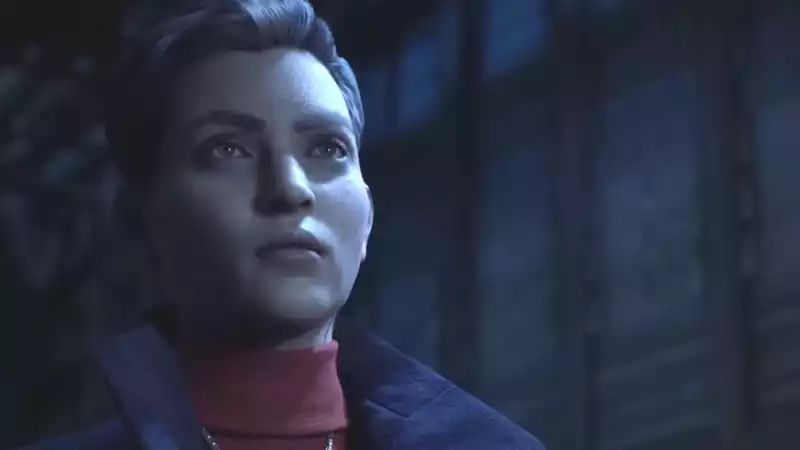The Crown of Expectations Weighs Heavy Vampire: the Masquerade - Bloodlines 2, the sequel to the 2004 cult classic RPG by the now-defunct Troika Games, has a lot to live up to. It needs to battle the intense nostalgia of its predecessor, and it needs to see the light of day in this hit year for RPGs.
I interviewed Alone Le Bray, narrative designer for The Chinese Room (TCR); prior to TCR, he was a narrative quality designer at Bioware for nearly 15 years: that is, he worked on games like "Dragon Age: Origins," " Mass Effect" series, among others.
According to Le Bray, in addition to referencing past games, TCR also looks to current games for inspiration." Sarah (one of the writers) is a big fan of "Baldur's Gate 3" ...... We're trying to figure out how we can borrow aspects (from "Baldur's Gate 3") or how we can make sure we don't take a big step backwards in terms of story.
Specifically, TCR is looking at the overwhelming evolution of RPG scenarios that Larian Studios exhibited earlier this year. "I categorize narrative as an aspect of gameplay."
"How can we make players feel like they own the outcome?"
"How can we give them the agency we want them to have?This is a high hurdle, considering that, aside from the eerie thirst of "Baldur's Gate 3-Gale," they have done wonders with the narrative design. There are glitches here and there, but we are talking about a game that took two full hours for one spell. A veteran studio gave the game a popular license to be at the absolute top of its game.
The Chinese Room, however, faces much steeper obstacles. For starters, "Bloodlines 2" suffered from an epic development hell tangle that even changed the studio entirely. This is also TCR's first foray into the action-RPG genre, having previously worked on narrative-driven games like "Dear Esther" and "Everybody's Gone to the Rapture."
Le Bray also said he turned to the tabletop origins of Vampire: The Masquerade (VTM). He stated that he did not want to break the contract between the player and the "Storyteller" (the D&D dungeon master version of VTM). The tabletop game stuff helps, too," he said. Because a lot of VTM is about the storyteller. After all, you're trying to give [players] the best version of the story you can tell.
As a cross-reference, the latest edition of the VTM describes the storyteller's role in much the same way. 'The storyteller's primary duty is to ensure that other players have a good time.' To do this, he or she must tell a good story. However, unlike a novelist or a film director, we do not simply tell the story from hook to climax." Open-ended storytelling is much easier when you envision the world in words around a table.
"For us, it was about looking at the fire and making their characters feel believable in this time and setting. Le Bray later said that he wanted players to feel that they were making decisions and getting results in a way that was not misleading.
"We don't want players to feel that they could make the wrong choice," Le Bray said. Like, "How dare you make choice A, the obvious right choice is B?
We also got to talking a bit about moral choices in video games, and how many RPGs are moving away from the "see my many good points" Paragon/Renegade system to the moral gray that VTM tabletop games are happy to inhabit We talked about. If there's a clear right and wrong, that's not interesting to me."
"Another way that VTM really helps us as IPs is that one of the first things you learn is that your people are monsters and you are literally a monster. You have to be a predator to exist: ...... In the tabletop game, there is humanity versus "the beast," and the closer you get to starvation, the harder it is to do what you want to do."
Le Bray is referring to some of the mechanics included in the VTM rules. If your humanity is 10, you are a saint, which in this book is rare for humans and "even more so for vampires who have achieved it." When humanity reaches 0, you are under the Beast's control and your character becomes a greedy NPC. For Le Bray, this tension is part of the story: "One of the great things about being an elder [of Fire] is that it was so long ago that you were human. ...... what it's like not to remember what sunlight feels like"
.
"In short, yes. We are big geeks and keep an eye on different things ...... We have some nerds on the team who are super into gaming, and there are some elements (from them) that I don't think would ever make it into our version." [I don't think "Bloodline 2" is going to be a second best to "Baldur's Gate 3," even if the work involved in creating both games is similar, such as translating tabletop storytelling to the digital world. The Chinese Room just has different access to resources. But it is interesting to see The Chinese Room tackle such challenges in its own unique way. When this long-awaited sequel rises from the grave, will we feel the DNA of the RPG greats?
.

Comments